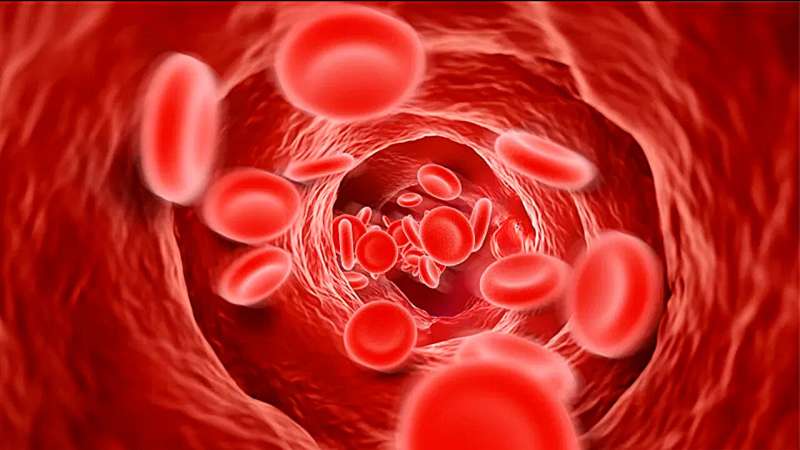
Healthy living

Countrywide Institutes of Wellness scientists and collaborators have found more than a hundred new regions of the human genome, also regarded as genomic loci, that show up to affect a person’s blood stress. Effects of the examine also point to many particular genomic loci that may perhaps be suitable to iron metabolic process and a sort of mobile receptor recognised as adrenergic receptors.
The research, posted in Nature Geneticsis a single of the major such genomic research of blood tension to date, including info from about one million members and laying the groundwork for researchers to improved have an understanding of how blood pressure is regulated. These types of insights could stage to probable new drug targets.
“Our analyze can help reveal a much greater proportion of the distinctions involving two people’s blood stress than was formerly identified,” explained Jacob Keaton, Ph.D., personnel scientist in the Precision Well being Informatics Section within the National Human Genome Study Institute’s (NHGRI) Intramural Study Method and 1st author of the research. “Our study uncovered additional genomic locations that together reveal a significantly larger component of the genetic discrepancies in people’s blood tension. Realizing a person’s chance for developing hypertension could guide to tailor-made remedies, which are far more possible to be efficient.”
To recognize the genetics of blood stress, the scientists combined four large datasets from genome-huge affiliation scientific tests of blood pressure and hypertension. Just after analyzing the data, they observed in excess of two,000 genomic loci connected to blood force, including 113 new regions. Amid the freshly discovered genomic loci, many reside in genes that enjoy a role in iron fat burning capacity, confirming past studies that higher stages of amassed iron can add to cardiovascular sickness.
The scientists also verified the association involving variants in the ADRA1A gene and blood strain. ADRA1A encodes a form of mobile receptor, known as an adrenergic receptor, that is now a goal for blood strain medication, suggesting that other genomic variants learned in the study could also have the possible to be drug targets to change blood pressure.
“This analyze shows that these major genome-large affiliation scientific studies have scientific relevance for locating new drug targets and are wanted to discover much more drug targets as we go ahead,” reported Dr. Keaton.
From these analyses, the scientists were ready to determine a polygenic possibility ratingwhich combines the results of all genomic variants collectively to forecast blood force and possibility for hypertension. These danger scores contemplate which genomic variants confer threat for hypertension and expose clinically significant differences involving people’s blood force.
Polygenic danger scores have possible to provide as a helpful resource in precision medication, but additional diverse genomic knowledge is required for them to be applicable broadly in routine wellness treatment. Whilst the collected data was largely from persons of European ancestry (owing to limited availability of diverse datasets when the research was started out), the scientists located that the polygenic threat scores ended up also relevant to folks of African ancestry, which was verified via examining facts from NIH’s All of Us Investigate Method, a nationwide hard work to develop a person of the biggest biomedical information means and speed up investigate to boost human health.
Approximately 50 percent of grown ups in the United States have significant blood pressurerecognized as hypertension. Large blood pressure normally operates in family members, meaning that there is a genetic part to producing the issue in addition to environmental contributions these kinds of as a superior-salt eating plan, deficiency of physical exercise, using tobacco and worry. When blood force is consistently as well higher, it can hurt the heart and blood vessels all over the physique, escalating a person’s danger for coronary heart sickness, kidney illness, stroke and other ailments.
The project was led by scientists at NHGRI in collaboration with Queen Mary College of London, Vanderbilt College Health care Heart, Nashville, Tennessee, the College of Groningen in the Netherlands and other institutions, as portion of the Worldwide Consortium of Blood Force. Around one hundred forty investigators from extra than 100 universities, institutes and government organizations contributed to this intercontinental examine.
Far more data: Genome-extensive analysis in about 1 million folks of European ancestry yields improved polygenic threat scores for blood force attributes, Nature Genetics (2024). On Exploration Square: DOI: ten.21203/rs.3.rs-1409164/v1
Citation: New study finds genetic markers that explain up to 12% of the discrepancies involving two people’s blood tension (2024, April thirty) retrieved thirty April 2024 from https://medicalxpress.com/news/2024-04-genetic-markers-variations-men and women-blood.html
This doc is subject to copyright. Aside from any good dealing for the objective of personal study or research, no part could be reproduced devoid of the penned permission. The written content is provided for data applications only.






